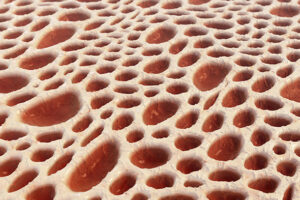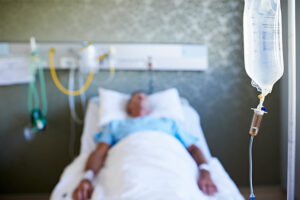Oncology
Multiple Myeloma
Durability of Response to Chimeric Antigen Receptor T-Cell Therapy for Multiple Myeloma
Overview
Chimeric antigen receptor (CAR) T-cell therapy can achieve very high response rates in heavily pretreated multiple myeloma, allowing many patients to enter a period of treatment-free remission. Efforts are ongoing to attain more durable and/or curative responses while maintaining a favorable therapeutic index.
Based on the currently available data, what do you make of the durability of response to CAR T-cell therapy?
Kenneth C. Anderson, MD
|
|
“Overall, these are very exciting data, and there will be more to come as this extremely promising modality gets moved earlier into the disease course.”
The 2 CAR T-cell therapies that are US Food and Drug Administration approved for relapsed/refractory multiple myeloma are idecabtagene vicleucel and ciltacabtagene autoleucel. These therapies are generating excitement, for good reason. Even among patients who have had multiple prior lines of therapy, response rates are high and responses are deep, including minimal residual disease–negative responses, in many cases. The ability to effectively treat patients at this point (ie, late in the disease course) appears to extend the overall survival by a couple of years or more.
Now that we have these options, we can seek to improve upon their durability and therapeutic indices. There has already been considerable progress made in the recognition and management of the neurologic complications and cytokine release syndrome, which is essentially the most common complication of CAR T-cell therapy. Early recognition, monitoring, and intervention are now making the therapeutic index quite favorable. Over the years, we have also learned quite a bit about appropriate dosing and how to effectively manage CAR T-cell therapy–related adverse events.
In the KarMMa trial, a phase 2 study with idecabtagene vicleucel, the median follow-up was 13.3 months, and the overall response rate was 73%. Patients received target doses of 150 × 106 to 450 × 106 CAR-positive T cells. We saw that the response rates were higher among patients receiving higher doses. The median estimated progression-free survival (PFS) was 8.8 months overall but 12.1 months for the 450 × 106 dose. Thus, for many of these patients, the responses are quite long-term.
In the CARTITUDE-1 trial, a phase 1b/2 study with ciltacabtagene autoleucel, the median follow-up was 12.4 months, and the overall response rate was approximately 97%. The median duration of response was not reached, and the median PFS was not estimable; however, the 12-month PFS rate was 77%, and the overall survival rate was 89%. Thus, again, many patients can achieve durable responses with these therapies.
Still, right now I have no impression that there will be a plateau on the survival curve with either therapy. KarMMa and CARTITUDE-1 are different trials, with potentially different patient selections, so one should not necessarily compare outcomes. Studies are examining the various characteristics that may correlate with more prolonged responses. This may relate to the dosing of CAR T cells, but the T-cell repertoire may also be very important. Patients who have fewer exhausted T cells appear to have more durable responses, which may become important as these therapies are studied in earlier treatment settings.
Overall, these are very exciting data, and there will be more to come as this extremely promising modality gets moved earlier into the disease course. Additionally, it may be possible to produce CAR T cells in a much shorter time, such as overnight or in a few days, and reinfuse them at much lower numbers, which might further optimize the therapeutic index.
Sagar Lonial, MD, FACP
|
|
“I look forward to us, as a community, learning how to make these responses more durable, for even more patients, and to achieve responses that are ultimately curative.”
We are all definitely very excited about CAR T-cell therapy and about the ability to achieve responses in the context of fifth-, sixth-, or even seventh-line therapy. A phrase that one often hears is that CAR T-cell therapy is “one and done.” It is true that patients who have been taking continuous antimyeloma therapy for years can often have a treatment-free interval following CAR T-cell therapy. Unfortunately, however, we are seeing that the remission only lasts between 1 and 2 years, on average.
So, while we are excited, we also want to understand why we are not getting a plateau in the survival curve. This is in contrast to the more durable remissions that are seen in approximately 40% of patients with large B-cell lymphoma who receive CD19-directed CAR T-cell therapy. I suspect that this has to do with the persistence of the CAR T cells, although this issue is still a bit unsettled.
Continuous therapy has generally improved outcomes for patients with multiple myeloma, and, in my view, when you move to a model in which you do not administer continuous therapy, you need to have either sustained minimal residual disease negativity for a long interval or a novel mechanism that actually eliminates the clone to be able to stop therapy. I am not sure that we are doing that yet with CAR T cells. Still, it is better to have these types of problems and to work through them than to not have these treatments at all. I look forward to us, as a community, learning how to make these responses more durable, for even more patients, and to achieve responses that are ultimately curative.
S. Vincent Rajkumar, MD
|
|
“CAR T-cell therapy gives patients with very heavily pretreated multiple myeloma 1 to 2 years of remission, and these are patients who truly do not have much in the way of other treatment options. But how do we take that 1 to 2 years and turn it into something much longer?”
These are excellent points that Dr Anderson and Dr Lonial raise regarding where we stand on the duration of response with CAR T-cell therapy and the plateau—or lack thereof—and I agree that we are not seeing a plateau and that we may not see a plateau. I also agree that it is important that we do not compare results across trials here. At our institution, when patients need a CAR T-cell therapy and are eligible for one, we offer whichever one we have access to at the time and really do not show a preference for one over the other.
The next advancements are likely to come from focusing on the factors that may still need to be overcome. For example, are we not seeing a plateau because we are treating too late in the disease course? Or is it because of the CAR T-cell construct itself? If so, can this be fine-tuned? Are there other important targets and/or other effector cells, such as natural killer cells, that can be used? And, as noted, perhaps giving the treatment earlier on, at the time of post transplant or post maintenance, would achieve better outcomes. These possibilities are all actively being investigated.
CAR T-cell therapy gives patients with very heavily pretreated multiple myeloma 1 to 2 years of remission, and these are patients who truly do not have much in the way of other treatment options. But how do we take that 1 to 2 years and turn it into something much longer? That is the task at hand. Additionally, access remains an issue, so that is another barrier to overcome.
References
Alarcon Tomas A, Fein JA, Fried S, et al. Outcomes of first therapy after CD19-CAR-T treatment failure in large B-cell lymphoma. Leukemia. 2023;37(1):154-163. doi:10.1038/s41375-022-01739-2
Anderson LD Jr, Munshi NC, Shah N, et al. Idecabtagene vicleucel (ide-cel, bb2121), a BCMA-directed CAR T cell therapy, in relapsed and refractory multiple myeloma: updated KarMMa results. J Clin Oncol. 2021;39(suppl 15):8016. doi:10.1200/JCO.2021.39.15_suppl.8016
Berdeja JG, Madduri D, Usmani SZ, et al. Ciltacabtagene autoleucel, a B-cell maturation antigen-directed chimeric antigen receptor T-cell therapy in patients with relapsed or refractory multiple myeloma (CARTITUDE-1): a phase 1b/2 open-label study [published correction appears in Lancet. 2021;398(10307):1216]. Lancet. 2021;398(10297):314-324. doi:10.1016/S0140-6736(21)00933-8
Dhodapkar KM, Cohen AD, Kaushal A, et al. Changes in bone marrow tumor and immune cells correlate with durability of remissions following BCMA CAR T therapy in myeloma. Blood Cancer Discov. 2022;3(6):490-501. doi:10.1158/2643-3230.BCD-22-0018
Martin T, Usmani SZ, Berdeja JG, et al. Ciltacabtagene autoleucel, an anti–B-cell maturation antigen chimeric antigen receptor T-cell therapy, for relapsed/refractory multiple myeloma: CARTITUDE-1 2-year follow-up. J Clin Oncol. 2023;41(6):1265-1274. doi:10.1200/JCO.22.00842
Munshi NC, Anderson LD Jr, Shah N, et al. Idecabtagene vicleucel in relapsed and refractory multiple myeloma. N Engl J Med. 2021;384(8):705-716. doi:10.1056/NEJMoa2024850
Paiva B, Manrique I, Rytlewski JA, et al. Early and sustained undetectable measurable residual disease (MRD) after idecabtagene vicleucel (ide-cel) defines a subset of multiple myeloma (MM) patients in KarMMa achieving prolonged survival [abstract 868]. Abstract presented at: 64th American Society of Hematology Annual Meeting and Exposition; December 10-13, 2022; New Orleans, LA.
Rodriguez-Otero P, Ailawadhi S, Arnulf B, et al. Ide-cel or standard regimens in relapsed and refractory multiple myeloma. N Engl J Med. 2023 Feb 10. doi:10.1056/NEJMoa2213614
Usmani SZ, Berdeja JG, Madduri D, et al. Ciltacabtagene autoleucel, a B-cell maturation antigen (BCMA)-directed chimeric antigen receptor T-cell (CAR-T) therapy, in relapsed/refractory multiple myeloma (R/R MM): updated results from CARTITUDE-1. J Clin Oncol. 2021;39(suppl 15):8005. doi:10.1200/JCO.2021.39.15_suppl.8005













